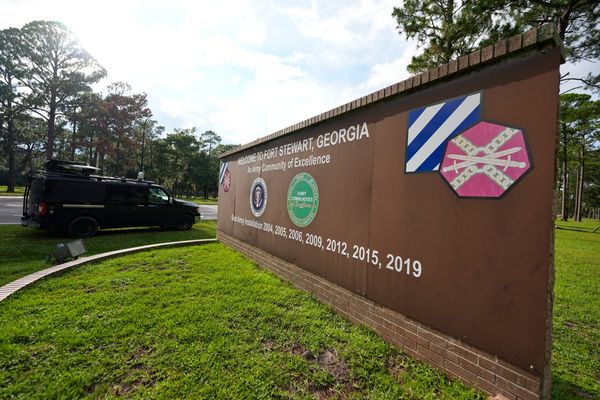Vocational education offers many benefits for students. It teaches practical skills that are needed for specific jobs. This type of education helps students prepare for their future careers.
Students in vocational programs often find good job opportunities. They gain hands-on experience and knowledge that employers value. Vocational education also helps students earn money sooner than traditional schooling.
In this blog, we will uncover the economic benefits of vocational education for individuals and communities.
Enhanced Employment Prospects
Vocational education helps young adults find jobs faster. It gives them the skills that employers want. Many programs for young adults focus on hands-on training.
These programs teach students how to do specific jobs. They learn by working on real projects. This experience makes students more attractive to employers.
Employers like to hire people with practical skills. They know these workers are ready to start. This leads to better job offers for those who complete vocational programs.
Vocational education builds confidence. Students learn to solve problems and work well with others. These qualities help them succeed in their careers.
Increased Earning Potential
Vocational education can help students earn more money. With skills learned in school, they can start good jobs sooner. Many jobs pay well and have steady work.
A vocational improvement program is a key way to boost earnings. Students gain hands-on skills that employers need. This training helps them stand out in the job market.
When students finish their programs, they often find better job offers. Employers value these skills and want to hire trained workers. Higher pay can change lives for the better.
Having a good job opens up financial options. It helps students support themselves and their families. Overall, vocational education leads to a brighter future.
Reduction of Skills Gaps
Vocational education helps reduce the skills gap. A skills gap happens when there are not enough workers with the right abilities. This can lead to job openings that go unfilled.
A voc training course teaches important skills needed for many jobs. Students learn by doing, which helps them understand better. This hands-on training makes them ready for work.
When more people complete these courses, the skills gap shrinks. Businesses find the workers they need. This helps the economy because jobs get filled.
Reducing the skills gap is good for everyone. It means more people can find work. A strong workforce supports a strong community.
Economic Growth in Communities
Vocational education drives economic growth in communities. When students gain skills, they can find jobs and contribute to the local economy. More employed people mean more spending in the community.
Businesses thrive when there is a skilled workforce. They can hire local workers who understand the job. This leads to increased production and better services.
As businesses grow, they create more job opportunities. This means that even those who are not in vocational programs can benefit. Everyone wins when the community has more jobs available.
Higher employment rates can lead to better infrastructure. Communities with stronger economies can invest in schools, parks, and roads. This overall improvement enhances the quality of life for everyone.
Support for Entrepreneurship
Vocational education encourages entrepreneurship among students. It provides them with the practical skills needed to start their businesses. These skills give students the confidence to take risks and pursue their ideas.
Many vocational programs include training in business management. Students learn about budgeting, marketing, and planning. This knowledge is key for anyone wanting to run a successful business.
Support networks often grow from vocational education. Students connect with mentors and local business owners. This guidance helps them navigate the challenges of starting a business.
When students succeed in entrepreneurship, the community benefits. New businesses create jobs and stimulate the economy. A vibrant business landscape leads to more opportunities for everyone.
Reduced Public Spending
Vocational education can lead to lower public spending. When more people find jobs, they rely less on government support. This reduces the financial burden on taxpayers.
With increased employment, communities see fewer people needing welfare programs. Tax dollars can then be used in better ways. This leads to improved services and infrastructure.
Reducing public spending helps the economy grow. Local governments can invest in schools, roads, and parks. Better community resources lead to a higher quality of life for everyone.
Vocational education helps create a stronger workforce. This means fewer people need financial aid. Communities can thrive when public resources are used wisely.
Community Retention of Talent
Vocational education plays a vital role in keeping talent within communities. When students gain skills, they are more likely to find jobs nearby. This helps them settle down and contribute locally.
Skilled workers often choose to stay where they were trained. They have relationships with employers and know the local job market. This leads to a more stable workforce in the community.
When new talent stays, it benefits local businesses. Companies can depend on skilled workers to fill roles. This consistency supports growth and success in the local economy.
Retaining talent creates a positive cycle. As people stay and work, they spend money in the community. This boosts local businesses and enhances everyone's quality of life.
Promotion of Lifelong Learning
Promoting lifelong learning is important for everyone. It helps people keep their skills up to date and learn new things. With so many changes in work and technology, learning never stops.
Vocational education supports lifelong learning by offering courses for all ages. People can return to school to gain new skills or improve their current ones. This helps them stay competitive in the job market.
You can also expand your skills through training programs. If you want to advance your career, you can get your TAE50122 here. This training is for experienced VET professionals who would like to move into a more senior or leadership role.
Communities benefit from lifelong learning too. When people invest in their education, they become better workers and leaders. This creates a stronger community with more opportunities for everyone.
Embracing the Benefits of Vocational Education
In conclusion, the benefits of vocational education are clear. It prepares students for jobs that pay well and are in demand. With the right skills, individuals can find meaningful work and improve their lives.
Communities also thrive when vocational education is valued. More skilled workers lead to stronger economies and happier residents. Lifelong learning for young adults and professionals ensures a bright future for all.
Check out our blog for more informative content if you find this article helpful.







